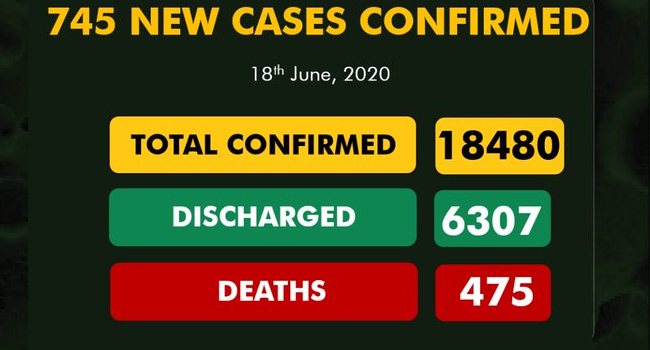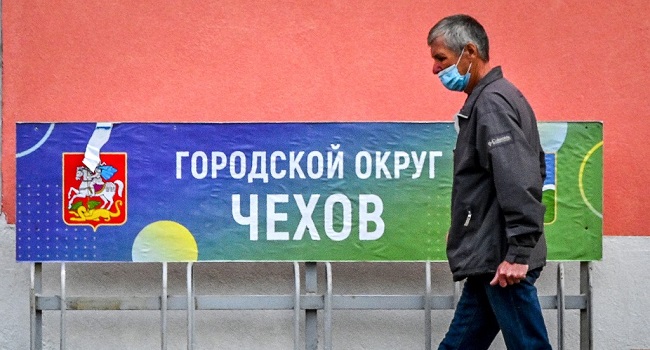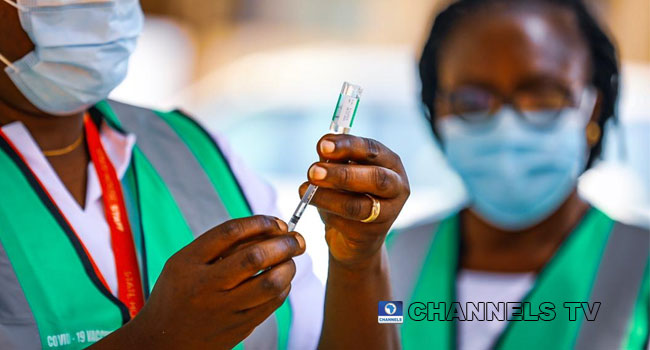
Nigeria on Thursday recorded its highest single-day COVID-19 infections with 745 new cases.
This was revealed in a late-night tweet by the Nigeria Centre for Disease Control (NCDC).
According to the NCDC, Lagos State had the highest number of infections for the day with 280 cases and is followed by Oyo and Ebonyi states with 103 and 72 cases respectively.
The health agency said other states with infections for the day include: FCT (60); Imo (46); Edo (34); Delta (33); Rivers (25); Kaduna (23); Ondo (16); Katsina (12); Kano (10); Bauchi (8); and Borno (7).
READ ALSO: How Nigeria Can Limit COVID-19 Death Rate – Health Minister
Others states with fresh infections are Kwara (5); Gombe (4); Sokoto (2); Enugu (2); Yobe (1) Osun (1); Nasarawa (1).
A further breakdown of the figures showed that the West African country now has 18,480 cases of the virus with 6307 persons discharged.
Of the number of recorded cases, 475 people have died from the disease, according to the data from the NCDC.
745 new cases of #COVID19Nigeria;
Lagos-280
Oyo-103
Ebonyi-72
FCT-60
Imo-46
Edo-34
Delta-33
Rivers-25
Kaduna-23
Ondo-16
Katsina-12
Kano-10
Bauchi-8
Borno-7
Kwara-5
Gombe-4
Sokoto-2
Enugu-2
Yobe-1
Osun-1
Nasarawa-118,480 confirmed
6,307 discharged
475 deaths pic.twitter.com/7nIkvEarwv— NCDC (@NCDCgov) June 18, 2020
Global Outlook
The novel coronavirus has killed at least 450,386 people since the outbreak began in China last December, according to a tally from official sources compiled by AFP as of 1900 GMT on Thursday.
At least 8,410,400 cases of coronavirus have been registered in 196 countries and territories. Of these, at least 3,866,200 are considered recovered.
The tallies, using data collected by AFP from national authorities and information from the World Health Organization (WHO), probably reflect only a fraction of the actual number of infections.




